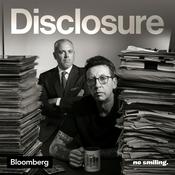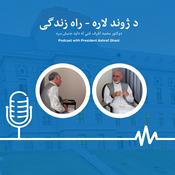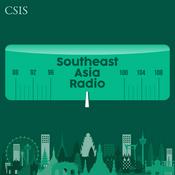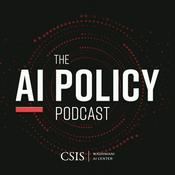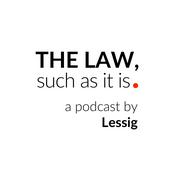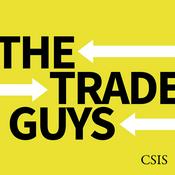149 episodi

90% of Voters Hate This, But Politicians Do It Anyway
26/11/2025 | 57 min
Interviewed on my videos by Peter Clarke of The Transit Zone, you'll find this interview is in a new register, more appropriate to our dire situation. Asked what I thought of democracy I riffed off Lincoln's idea that it was "the last best hope of earth". And off an idea I expressed a few years ago - in a post titled "Will you join me in the alt-centre". I argued that the alt-right's diagnosis of how much is wrong with our institutions is right! It's just their next step, that there's something better than democracy, catastrophically wrong. So wrong that the world they build will be worse even for them.So have a listen and tell me what you think.

Me on Curious World View
13/08/2025 | 2 h 46 min
Ryan Faulkner-Hogg asked me to join him on his long-form podcast show where, over nearly three hours, we spoke about many things.Here are his show notes:I joined the Australian economist Nicholas Gruen recently in his Melbourne home to host his first 'long-form' podcast (although I'm not sure at what hour it goes from short to long)At the core of Gruen's worldview is the “un-seriousness” he levels at Australian politics, the media landscape, institutions and in a word... bureaucracies.From his creation of the HALE Index to his decades inside Australia’s public institutions, Nicholas continuously challenges orthodox thinking.The podcast covers the (in my opinion) radical yet (Nicholas's opinion) ancient idea of citizens’ juries as a second pillar of representation, the reasons bold policy rarely survives bureaucratic reality, and how lessons from the Toyota production system could help governments actually listen to people at the bottom of the hierarchy.Along the way, Gruen takes us from Australia’s superannuation system to pokies, from the mental health crisis to the subtle erosion of public-spiritedness inside organisations. To be specific, these are all the topics covered in this chat.The HALE Index of Well-being – Why GDP misses the mark, how HALE works, and what it reveals about Australia’s progress.Measuring What Matters – The limits of subjective well-being metrics, correlations between indicators, and why faux indexes mislead policymakers.Indigenous Policy Contradictions – The tension between material “gap closing” and self-determination, and why policy rarely confronts it.Citizens’ Juries & Political Reform – Introducing random selection into governance and how it could act as a check on elected officials.Goodhart’s Law in Action – How turning measures into targets corrupts them, and the problem of gaming metrics in education and beyond.Internal vs External Goods – Alasdair MacIntyre’s framework and its relevance to public service, corporate culture, and motivation.Institutional Stagnation – Why promising initiatives stall, and how bottom-up programs could scale without being crushed by bureaucracy.Toyota Production System Lessons – Building respect for frontline workers into systems and how it transforms performance.Australia’s Superannuation System – Strengths, inefficiencies, unfair taxation, and misaligned regulation of self-managed super funds.Compulsory Voting & Preferential Systems – How they shape Australia’s political centre and guard against extreme populism.Universities Today – The shift from idea-driven discourse to metric-chasing careerism, especially in economics.Trade-offs vs Synergies – Why economics often overemphasises trade-offs, and examples of where quality and cost improve together.If you prefer to watch the video, it's here.

Can random citizens fix what party politics broke?
09/08/2025 | 22 min
In this final talk at Web Directions NEXT, I explore how we might breathe new life into democracy—by giving ordinary people a permanent seat at the table.The idea is to establish a House of Citizens—a standing assembly of everyday people, chosen by lottery, deliberating on the same laws and policies as parliament or congress. No formal power at first. Just visibility to the public who get to see another way to do democracy.That other way involves building a new institution in which the considered judgement of citizens can be forged and then express itself. Imagine, how might that shift previously vexed debates on guns in the US, carbon pricing in Australia, or Brexit in the UK?I also reflect on conversations with Google’s Vint Cerf about building better online platforms for cultivating good discussion. This is a fairly visual presentation with a video played, so if you want to see the action you can find the talk on YouTube.

How we confuse winning with worth
08/08/2025 | 17 min
In the second of three talks at John Allsopp’s Web Directions Dec 2024 NEXT conference, I dig into a question modern life has taught us to overlook: how do we decide what's truly good?We’ve built a civilisation where merit is often confused with ambition, where leadership is predicated on self-promotion, and where institutions reward ambition and playing the game (instead of service) and ‘smartness’ (instead of good judgement). Enter what I call “bottom-up meritocracy”, as practised in medieval Venice and on modern Wikipedia, I explore how “bottom-up meritocracy” once thrived—and could again.We’ll look at how the American Founders tried (and failed) to build a system of bottom-up meritocracy inspired by Venice's constitution (among others), how our institutions have become increasingly hollowed out, and why Charlie Munger summed it all up when he described what we should be aiming for: a “seamless web of deserved trust”.If you prefer listening to the YouTube video, it's here:

Economic and political reform, with John Humphreys and Gene Tunny
01/08/2025 | 1 h 23 min
In this freewheeling conversation with John Humphreys and Gene Tunny, we delve into what’s gone wrong with modern policymaking—and what can be done about it. We begin with the dysfunctional state of our tax system. I argue we should scrap dividend imputation and cut the company tax rate to attract foreign capital and grow the national pie. We then explore the systemic malaise of democracy: how spin, performativity, and institutional incentives have crowded out real deliberation and made difficult choices all but impossible. Politicians aren’t uniquely bad—they’re trapped in a system that punishes truth-telling and rewards evasion. All politicians are against tax and for spending and you can see that in the sea of red ink we're sailing into in Tasmania, Victoria, Australia and the US. That leads to my proposal for a deeper reform: embedding citizens’ juries into democratic life. We discuss how standing citizens’ assemblies could reorient policy debates on issues like housing, infrastructure, climate and budget repair. This is not about trusting “ordinary people” over politicians—it’s about designing a system that enables public reason to flourish again. (OK, well the AI wrote that sentence, which gives you some idea of why we can't hand over to AIs just yet.)If you prefer to watch the video (God knows why you would) it's here.
Altri podcast di Governo
Podcast di tendenza in Governo
Su Nicholas Gruen
Ascolta Nicholas Gruen, Disclosure e molti altri podcast da tutto il mondo con l’applicazione di radio.it

Scarica l'app gratuita radio.it
- Salva le radio e i podcast favoriti
- Streaming via Wi-Fi o Bluetooth
- Supporta Carplay & Android Auto
- Molte altre funzioni dell'app
Scarica l'app gratuita radio.it
- Salva le radio e i podcast favoriti
- Streaming via Wi-Fi o Bluetooth
- Supporta Carplay & Android Auto
- Molte altre funzioni dell'app


Nicholas Gruen
scarica l'app,
ascolta.
